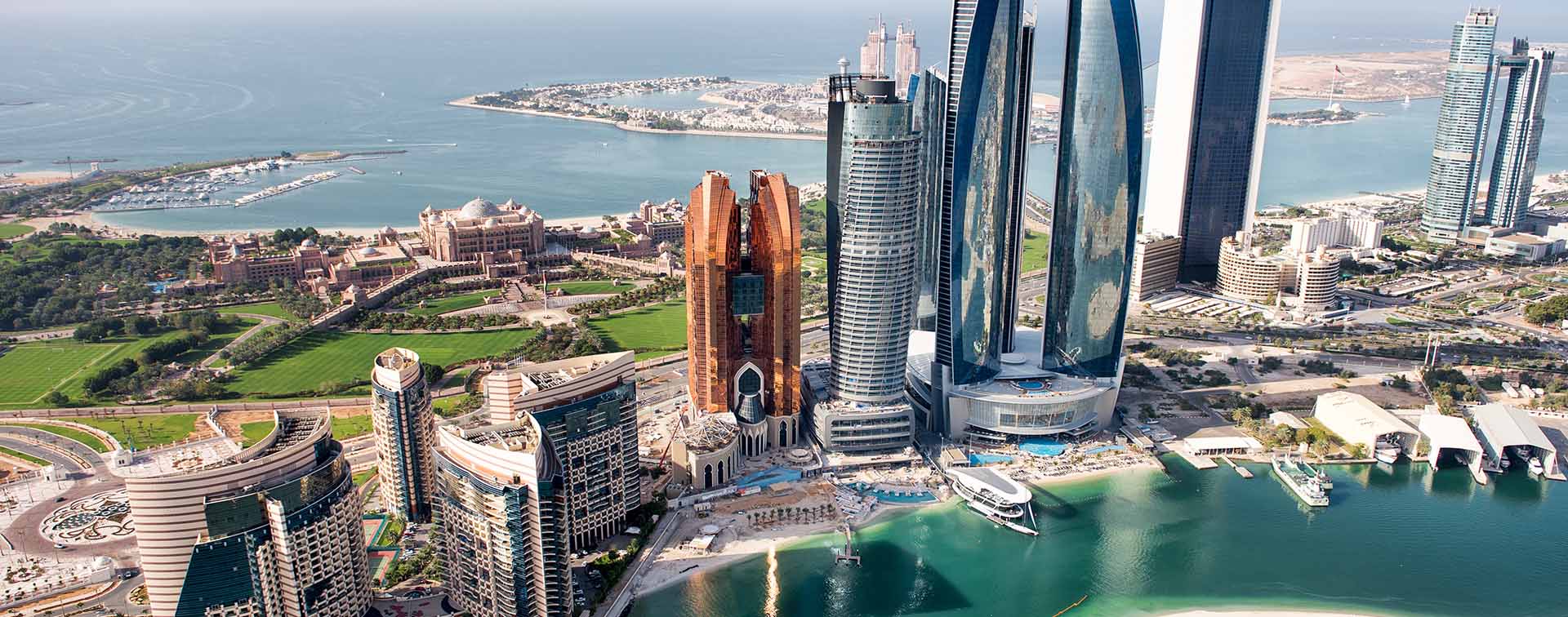
Dr. Robert Mogielnicki is a Senior Resident Scholar at The Arab Gulf States Institute, as well as an Adjunct Assistant Professor at Georgetown University and a Professorial Lecturer at The George Washington University.
The UAE is in a strong position to manage a deceleration of growth taking place across the region, while continuing to advance a future-oriented economic development agenda that attracts global wealth and talent.
Economic growth in the Gulf Cooperation Council (GCC) region will slow considerably this year and then stabilize at modest rates over the near term. According to the International Monetary Fund, real gross domestic product (GDP) growth in the UAE will decelerate from 7.4% in 2022 to an estimated 3.5% in 2023, with forecasted future growth hovering around 4% over the following years. The robustness of economic growth and fiscal balance sheets in GCC countries such as the UAE remain linked to global energy prices. Brent crude oil prices averaged USD 100.94 per barrel in 2022, up from USD 70.89 in 2021, and are expected to rest at around USD 78.65 and USD 74.47 in 2023 and 2024, respectively.

Yet Emirati economic policymakers operate on a longer timeframe. While many neighboring GCC countries follow visions ranging from 2030 to 2040, the UAE’s ‘Projects of the 50’ involve a series of economic initiatives intended to fuel the country’s development over the next several decades. Oil-rich Abu Dhabi possesses the financial resources to ensure the capital emirate remains an attractive hub for expatriate talent and foreign firms. Its massive sovereign wealth holdings — USD 790 billion in the Abu Dhabi Investment Authority, USD 284 billion in Mubadala, and USD 159 billion in ADQ — attract skilled professionals and prominent firms from across the global financial sector. In May 2023, Abu Dhabi Global Market (ADGM), the emirate’s financial free zone, announced plans for a tenfold expansion in its area of jurisdiction.
The Dubai Economic Agenda, or D33, aims to “double the size of Dubai’s economy over the next decade and consolidate its position among the top three global cities”. The Executive Office of Dubai likewise released a 50-year charter in January 2019. Smaller emirates in the UAE are seeking to carve out a competitive edge through niche economic development strategies and associated projects. The emirate of Ras Al Khaimah has partnered with Wynn Resorts to open the first legal gaming operation in the UAE, reflecting an Emirati propensity to serve at the forefront of new industries and sectors within the Gulf region. Ras Al Khaimah’s newest free zone, RAK Digital Assets Oasis, will focus on digital and virtual asset companies.
These future-oriented growth plans include a strong focus on technology-oriented sectors. Fintech is a key driver of growth for the Dubai International Financial Centre (DIFC) —fintech and other innovation-oriented firms have constituted more than 27% of the financial free zone’s overall client growth during the past three years. Federal and emirate-level governments in the UAE are wagering that a welcoming regulatory environment for crypto firms and the implementation of digital currency strategies will further enhance the country’s status as a financial hub. The crypto exchange Coinbase is reportedly considering the UAE as a location for its international hub.
Smart economic policymaking involves a healthy balance of carrots and sticks. The UAE government implemented a 9% corporate income tax that was effective from 1 June 2023. Firms registered in free zones can enjoy tax exemptions if they meet various qualifying conditions. Although new taxes can complicate global wealth and talent attraction efforts, the corporate income tax does not apply to small firms under the minimum income threshold, personal salaries, or other individual earnings. Non-hydrocarbon revenues from the new tax will lower the fiscal breakeven oil price to below USD 65 per barrel, helping to ensure the long-term sustainability of state finances during periods of lower energy prices.
The UAE’s primary economic competition in the region is Saudi Arabia, where Crown Prince Mohamed bin Salman continues to advance an ambitious social and economic transformation agenda under Saudi Vision 2030. The UAE and Saudi Arabia are following overlapping development trajectories, which has created occasional friction between the two governments. For example, Saudi officials established a new national airline, Riyadh Air, in March 2023, as part of broader ambitions for its aviation sector. Growing regional competitive dynamics are unlikely to dissolve into outright hostilities. However, Saudi Arabia’s economic policy decisions will undoubtably influence and shape the UAE’s economic development model over the coming years.
In response, Emirati officials have intensified plans to improve the country’s livability for residents and visitors as well as investability for firms and investors, reflecting a strategy to remain multiple developmental steps ahead of Saudi Arabia and other regional states. The UAE’s hosting of the 2023 United National Climate Change Conference — or COP28 — not only places the country in the global limelight, but also serves as a call-to-action for the Emirati government to play a leading role in promoting sustainability domestically and tackling climate change on a global level. In May 2023, Emirates (the Dubai-based international airline) announced a USD 200 million aviation sustainability fund to reduce the impact of fossil fuels in commercial aviation.
Other efforts to enhance regional connectivity present an opportunity for the UAE to benefit from growing interest in Saudi Arabia by the global business community and tourists. A Schengen-style tourist visa for GCC countries — reportedly in the planning stages — would benefit established tourism hubs such as the UAE, especially if religious tourists visiting Saudi Arabia are able to move more freely across the region. Progress on other regional integration initiatives, such as the GCC Railway project connecting various GCC cities, would likewise expand the regional opportunities available to UAE-based investors and businesspeople.
Emirati economic policymakers are simultaneously enhancing international partnerships through new economic mechanisms. The UAE Government is signing comprehensive economic partnership agreements (CEPAs) — which resemble free trade agreements but include broader implications — with Asian, African, Latin American, and European countries. The key objective behind CEPAs involves improving linkages to promising global markets and enhancing the UAE’s position as a global trade and logistics hub. Deeper economic linkages to the global economy will solidify the UAE’s sturdy foundation for the continued attraction of global wealth and talent.